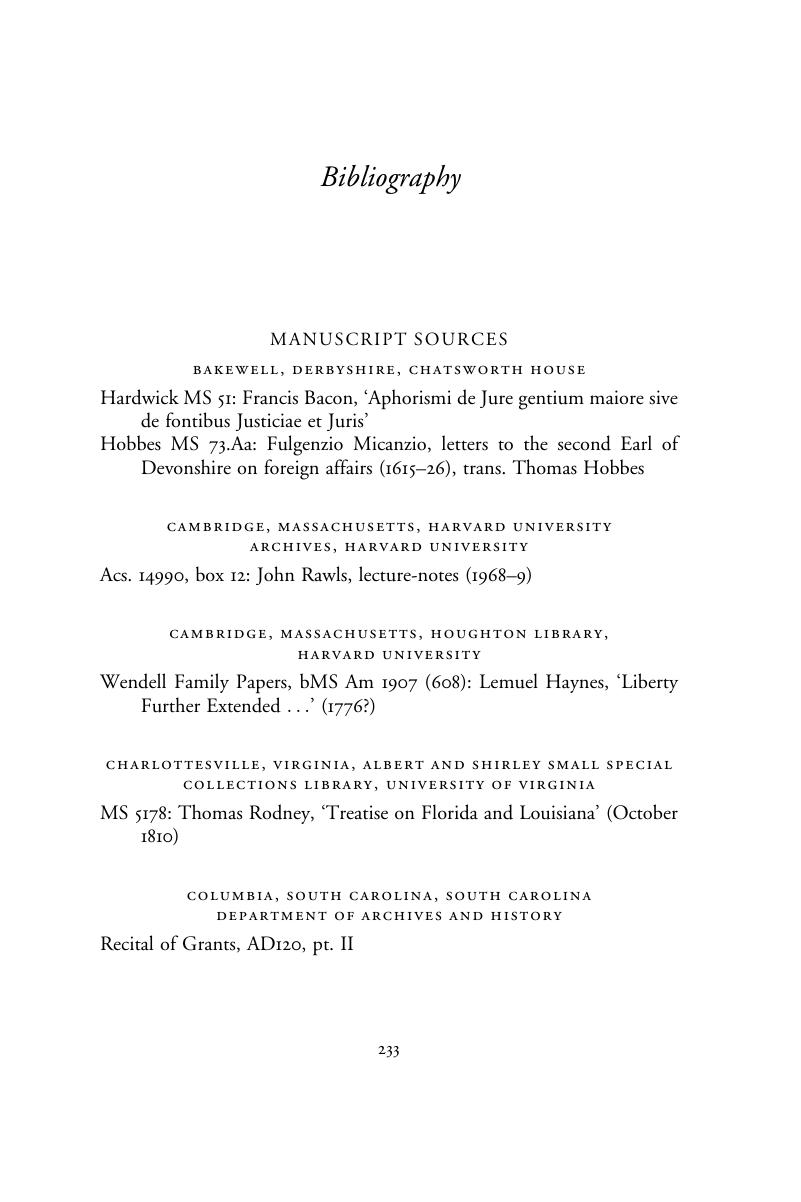Book contents
- Frontmatter
- Contents
- Figures
- Preface
- Abbreviations
- Introduction: rethinking the foundations of modern international thought
- Part I Historiographical foundations
- Part II Seventeenth-century foundations: Hobbes and Locke
- Part III Eighteenth-century foundations
- Part IV Building on the foundations: making states since 1776
- Bibliography
- Index
- References
Bibliography
Published online by Cambridge University Press: 05 April 2013
- Frontmatter
- Contents
- Figures
- Preface
- Abbreviations
- Introduction: rethinking the foundations of modern international thought
- Part I Historiographical foundations
- Part II Seventeenth-century foundations: Hobbes and Locke
- Part III Eighteenth-century foundations
- Part IV Building on the foundations: making states since 1776
- Bibliography
- Index
- References
Summary

- Type
- Chapter
- Information
- Foundations of Modern International Thought , pp. 233 - 291Publisher: Cambridge University PressPrint publication year: 2012



